Cigar Aficionado's Hall of Fame
EDGAR M. CULLMAN
Chairman, General Cigar Holdings Inc., New York City
Edgar Cullman has won a string of tobacco industry accolades, but his greatest pride comes from the consistency of his Macanudo cigars. Cullman, 84, has called the success of the brand "the most rewarding experience of my life" -- a weighty statement from a man with the following curriculum vitae.
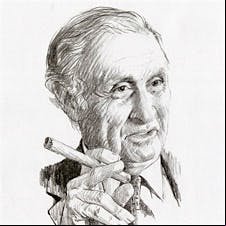 |
After graduating from Yale University in 1940, Cullman worked for the Underwriters Trust Co., and at the advent of the Second World War he went to Washington to serve as a business analyst for a unit of the Treasury Department. After the war, he entered the tobacco business, ing Cullman Bros. Inc., the family's Hartford, Connecticut, tobacco farm. He also worked for H. Anton Bock, a New York City cigar company, where he learned to handle tobacco and roll cigars. By the late '40s, he had assumed control of the company's Connecticut wrapper operations and Florida tobacco interests. He also devoted time to the family's investment banking firm, also called Cullman Bros.
In 1961, Cullman decided that the future lay in cigar making, so he assembled a group of investors and bought General Cigar Co. He was 43. At that time, General's main business was machine-made cigars, including White Owl, William Penn and Robert Burns. The company bought its first brand, Gold Label, in 1963, and the Temple Hall factory in Jamaica in 1969. The sale included Macanudo, a brand that wasn't sold in the United States at the time. Cullman launched Macanudo in 1971 with the slogan "the ultimate cigar." He purchased the U.S. rights to Partagas from Cuba's Cifuentes family in 1974, and the two brands have anchored General's cigar business ever since.
In 2000, Swedish Match AB acquired 64 percent of General Cigar, but Cullman and his son, chief executive officer Edgar M. Cullman Jr., manage the company. The elder Cullman still reports to his offices every day. His preferred smoke is a Macanudo Vintage No. IV, but on special occasions, he'll dip into his treasure trove of pre-Castro Cubans. And he enjoys his work. "I think it's the most romantic business," he says. "I love it. I love the business."
ZINO DAVIDOFF
Founder, Davidoff et Cie., Geneva
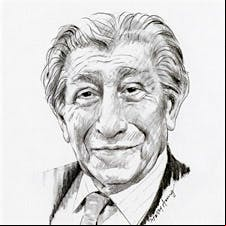 |
Zino Davidoff became a man of the world, but his beginnings were humble. Born in Kiev, Russia, in 1906, Davidoff, along with his family, fled the pogroms in 1912, settling in Geneva. His father, Henry, opened a tobacco shop there, which was frequented by Russian exiles, including Vladimir Lenin.
Davidoff's father urged him to visit tobacco lands, and after stints in Argentina and Brazil, the 20-year-old landed in Cuba, where he spent two years on a tobacco farm. His Cuban years gave him an appreciation for Havanas, which he would spread like gospel for the rest of his life.
In 1929 Davidoff returned to Geneva and opened his own shop, which was unique in Europe for its cigar cellar. His trademark charm won him a loyal and elite clientele. He established the Davidoff brand in 1969, and in 1970 he sold his shop and brand to Swiss importer Oettinger Imex A.G. Davidoff and Oettinger increased the brand's worldwide presence and expanded into other luxury products. Davidoff acted as a sort of eminence gris, helping develop the Dominican Davidoff when production was moved there in 1990.
When Davidoff died in January 1994, the cigar industry lost a ionate champion.
"The cigar has been my life," he wrote in his 1967 book, The Connoisseur's Book of the Cigar. "I owe it everything: my pleasures and my anguish, the joys of my work as well as the pleasant leisure hours it affords, and, if I have acquired over the course of the years some bit of philosophical perspective, it is to the cigar that I am in debt."
CARLOS FUENTE SR.
Chairman, Tabacalera A. Fuente y Cia., Santiago, D.R.
 |
He speaks softly, sparingly, a gravel-voiced man who doesn't need to shout to command respect. Carlos Fuente Sr., 67, sits atop a cigar empire. Tabacalera A. Fuente y Cia., which his father, Arturo, created in 1912 and he now runs, makes more than 40 million cigars each year, but the Fuente path to fortune was paved with razor blades. Fires destroyed factories in Ybor City, Nicaragua and Honduras, and in 1980, Fuente Sr. relocated to the Dominican Republic.
Fuente mortgaged his home and cashed in on his retirement savings to start up in Santiago, which had yet to blossom into the cigar capital it is today. "I got a loan," he says. "I didn't even know when I'd be able to pay it." He had all of seven workers when he opened his doors in the Santiago free trade zone. At night, he and his family lived in a small home without air conditioning, a telephone or running water, and his car was a Datsun 120 Wide, one of the cheapest automobiles on the market.
Today, Tabacalera A. Fuente is one of the world's largest cigar companies and enjoys widespread demand for its cigars, especially its Fuente Fuente OpusX brand. Today, Fuente Sr. can drive anything he wants, but he still owns that Datsun. "I will never sell it," he says.
FRANK LLANEZA
Former Co-Owner, Villazon & Co., Tampa, Florida
When the U.S. embargo was imposed on Cuba in 1962, Villazon & Co. was 100 percent dependent on Cuban tobacco. While other companies sold their inventories, Villazon, led by Frank Llaneza, began buying. The company flourished, a testament to the tenacity of a man once described in The Wall Street Journal as "the last grand old man of the cigar business as it was carried over from Cuba."
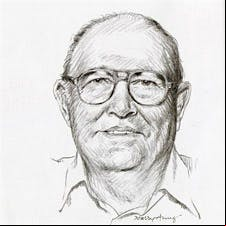 |
Villazon was founded by Llaneza's father, Jose Llaneza Sr., in 1920 in Tampa, Florida. Frank Llaneza entered the family business in 1936 and assumed leadership of the company in 1953. It wasn't until the early '60s that Llaneza turned Villazon into an industry giant. Forced to develop new methods of producing Cuban-quality cigars, Llaneza bought as much Cuban tobacco as he could and began experimenting, blending Havana leaf with tobacco from the Caribbean and Central and South America, and ultimately developed a product that echoed the aromas and flavors of a Cuban cigar. "Everyone wanted to make mild cigars," he says. "We took the niche of people who were smoking heavier cigars."
Llaneza was one of the pioneers in Honduras, and, along with men such as Angel Oliva Sr., literally carved farms from the wild. He created Honduras American Tobacco Co. in 1963 with the help of Oliva, making such powerhouse brands as Punch and Hoyo de Monterrey. The company is the largest cigarmaker in Honduras, with factories in Danl" and Cofradia.
Llaneza and his partner, Dan Blumenthal, sold Villazon to General Cigar Co. in 1997 for $81.4 million. Today, Llaneza has a quieter role in the company. Looking back, he is characteristically modest. "I was very lucky," he says. The truth is that his success was built upon vision and hard work.
STANFORD NEWMAN
Chairman, J.C. Newman Cigar Co., Tampa, Florida
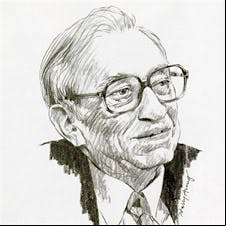 |
In 1995, the J.C. Newman Cigar Co. celebrated its 100th anniversary. The company had come a long way from its humble beginnings in 1895, when Julius Caesar (J. C.) Newman took an order from a family grocer to make 500 cigars and rolled them himself in a barn behind his Cleveland home. Leading the celebration was the company's chairman, Stanford Newman. Now 86 years old, Newman has headed the company for more than 40 years.
Newman served in the Army Air Corps as an airplane mechanic during the Second World War, then ed the family business permanently. J. C. died in 1958, and Stanford took over. That year, he made one of the company's most important deals, acquiring the Cuesta-Rey brand. For the next two decades, J.C. Newman would be regarded as one of the best machine-made cigarmakers in the United States.
In 1986, with the cigar market uncertain, Newman bought out his relatives, then struck a fortuitous deal with the Fuente family. The Fuentes began making handmade cigars for the Newmans, and the Newmans later began distributing the Fuentes' cigars. The arrangement has been a boon to both families.
Stanford Newman often quotes his father: "If you make cigars of quality, you can stay in business for another 100 years, but if you make something cheap, somebody can always make them cheaper and you'll go out of business in six months." Still active in his ninth decade (his book, Cigar Family, was published by Forbes in 1999), Stanford works alongside his sons Eric and Robert, heirs to the Newman empire.
ANGEL OLIVA SR.
Founder, Oliva Tobacco Co., Tampa, Florida
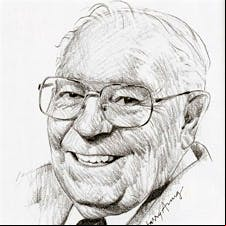 |
When Angel Oliva Sr. emigrated from his native Cuba to Tampa, Florida, in 1925 at the age of 18, he carried the barest essentials: $50 cash, a small suitcase and tobacco seeds sewn inside his belt.
Nine years later, Oliva founded the Oliva Tobacco Co., and those metaphoric seeds grew into a very literal tobacco empire, one that today provides the tobacco for many of the finest handmade brands in the world, including Arturo Fuente, Punch, La Gloria Cubana and El Rey del Mundo.
Throughout his life, Oliva relied on hard work and 20/20 foresight. In 1960, preparing for the imminent embargo, he agreed to acquire 3.85 million pounds of Cuban tobacco, which would sustain his clients through the next few years. At the same time, he began to cultivate land for alternative sources of tobacco -- first in north Florida, Connecticut and Honduras, and later, as his empire grew, in Ecuador, Nicaragua and the Dominican Republic. Among numerous other accolades, he received a Chamber of Commerce Service Award in 1963 for expanding the boundaries of the tobacco market.
"My business allowed me to do for my family the way I always dreamed," he said. When he died in 1996, at the age of 89, it was his family that succeeded him. His son John runs the company now -- and after him, John Jr., Oliva's grandson, stands ready to take over.












